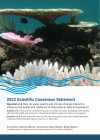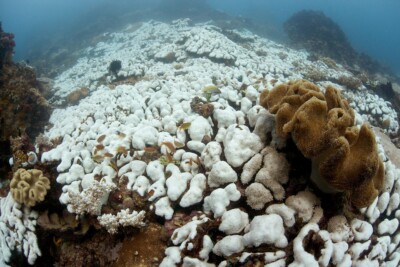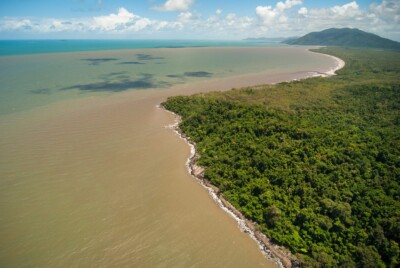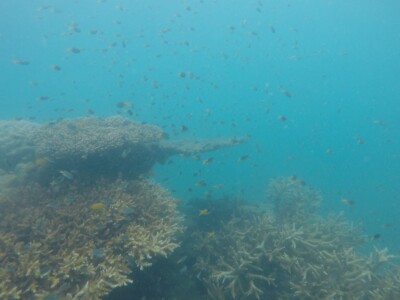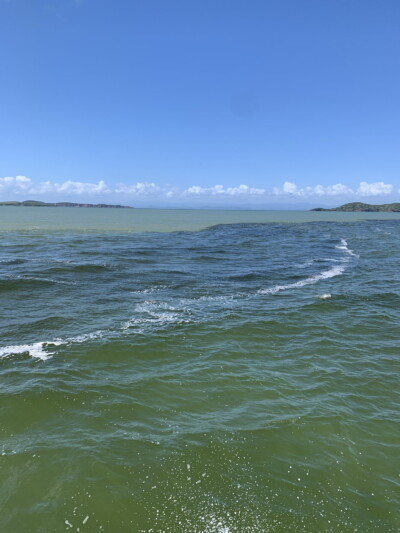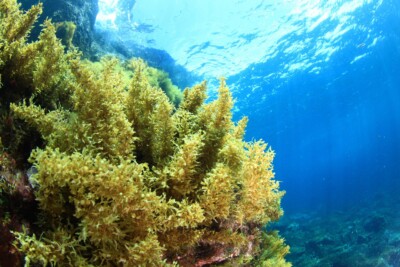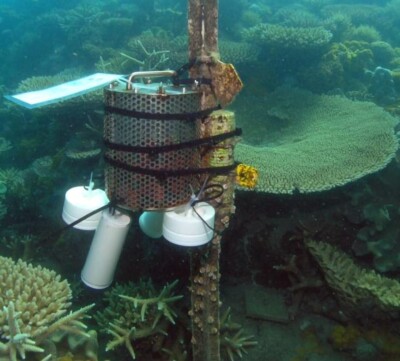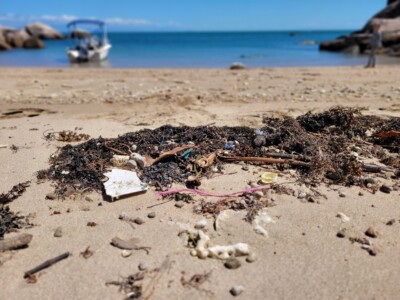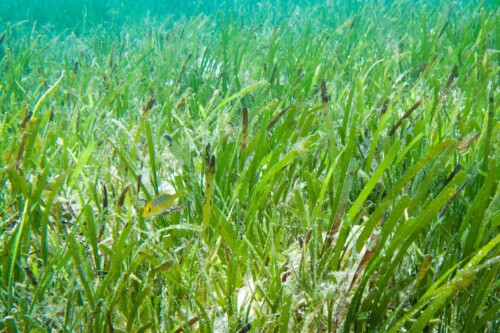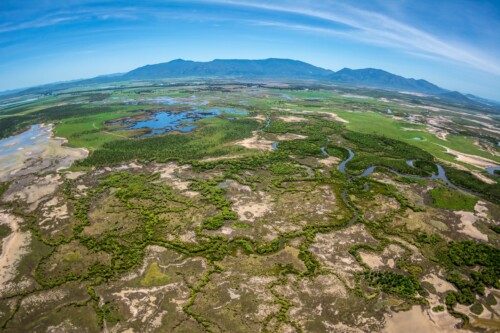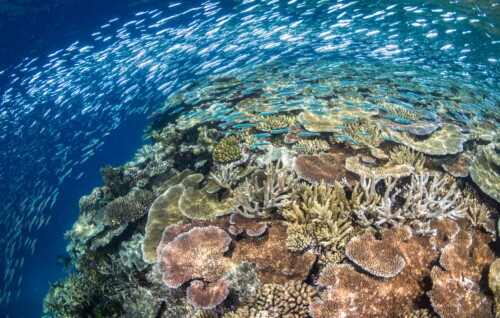Values, condition and drivers of health of the Great Barrier Reef

How do water quality and climate change interact to influence the health and resilience of Great Barrier Reef ecosystems? [Q2.4]
How are the combined impacts of multiple stressors (including water quality) affecting the health and resilience of Great Barrier Reef coastal and inshore ecosystems? [Q2.4.1]
Would improved water quality help ecosystems cope with multiple stressors including climate change impacts, and if so, in what way? [Q2.4.2]
Authors: Sven Uthicke1, Katharina Fabricius1, Aimee Brown2, Bianca Molinari3, Barbara Robson1, 4
Affiliations: 1Australian Institute of Marine Science, 2Private Consultant, 3C2O Consulting, 4AIMS@JCU
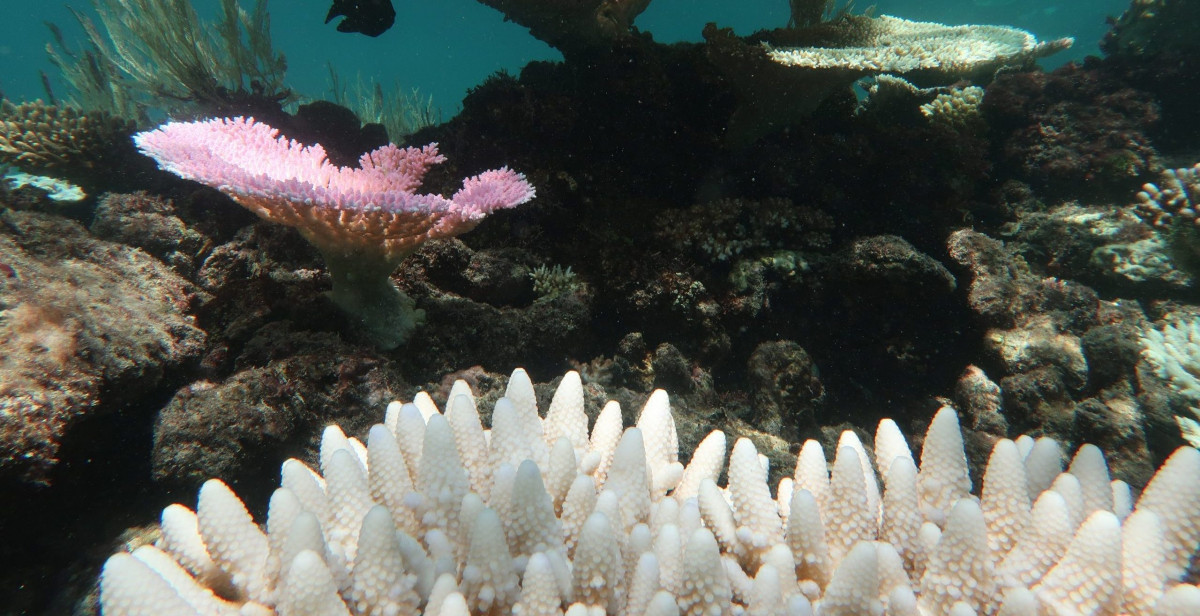
Evidence Statement
The synthesis of the evidence for Question 2.4 was based on 117 studies undertaken mostly in the Great Barrier Reef and published between 1990 and 2022, including a High diversity of study types (61% experimental, 13% modelling, 13% reviews, 9% mixed methods, and 4% observational) and with a High confidence rating (based on High consistency and High overall relevance of studies).
Summary of findings relevant to policy or management action
There is consistent evidence that climate change factors (including temperature and ocean acidification) and water quality characteristics (including nutrients, light/sediments and pesticides) have combined effects on a variety of organisms in coral reef ecosystems of the Great Barrier Reef. In the majority of cases, the outcome for the organism is worse under combined effects. These combined effects have mainly been studied on coral reefs, with far fewer studies on seagrass meadows (often associated with coral reef studies) and very limited information on coastal wetlands. For corals, the most detrimental effects documented are the combined effects of climate change and herbicides, and there is also evidence that climate change can interact with both nutrients and light reduction/sedimentation to cause additional stress, including reduced thermal tolerance. Several interactions between climate change and water quality have also been detected in seagrass ecosystems, with the possible exception of ocean acidification which can stimulate plant growth. Although mechanisms are not always fully understood and quantified, there is high confidence (from the Great Barrier Reef and elsewhere) that improving water quality will to some extent ameliorate climate change impacts (‘buy time’) for coral reef and seagrass ecosystems. The strength and length of this reprieve cannot yet be quantified. Improved water quality also indirectly benefits coral reef ecosystems by increasing resilience of organisms and reducing recovery time following acute disturbances such as bleaching, crown-of-thorns starfish outbreaks and cyclones. These benefits will become increasingly important as climate pressures continue to grow.
Supporting points
- Simultaneous exposure of climate change and water quality stressors can have detrimental impacts on coral reef ecosystems. The combinations of these stressors are often additive and pose a greater (aggravating) threat to organisms than single stressors (e.g., temperature or nutrient exposure in isolation).
- From this review, most stressors showed aggravating impacts (i.e., combined stressors had a greater impact than individual stressors) on at least one physiological or life history trait such as growth, mortality or photosynthesis.
- The combinations of climate change and herbicides can have a negative impact particularly for corals and algae. Data on this combination are sufficient to model species sensitivity distributions and define climate-adjusted thresholds for individual herbicides. From the studies that examined how climate change and herbicides interact, 89% showed additive/aggravating effects across a range of organisms.
- The combined effects of climate change and increased nutrients have been well studied, primarily in corals and foraminifera, with 77% of studies finding that nutrients impose an additional stress when combined with climate change factors such as temperature and ocean acidification.
- Corals and seagrass are negatively impacted by the interactive effects of climate change, primarily temperature, and light reduction from turbidity or sedimentation, with 70% of studies indicating aggravating effects. There is evidence to suggest the combination of climate change stressors also results in negative interactive effects on coral reef ecosystems and organisms. The most studied combination was between temperature and ocean acidification, whereby 56% of studies identified aggravative effects on a wide range of organisms.
- There has been limited research on some combinations of water quality and climate change stressors in the Great Barrier Reef including salinity, and heatwaves and the frequency and intensity of runoff events.
- To reduce the cumulative pressures and the associated detrimental outcomes on coral reef ecosystems and organisms, improved water quality throughout the Great Barrier Reef is essential, together with national and global reductions in carbon emissions to reduce the rate of warming and ocean acidification.
